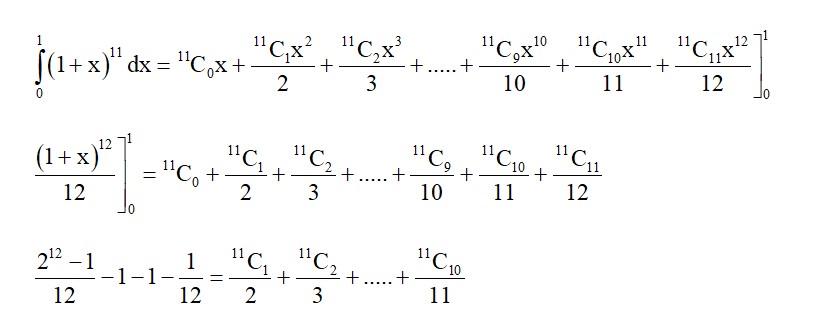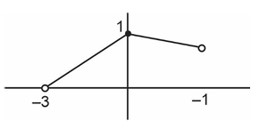Let [x] denote greatest integer less than or equal to x. If for n ∈ N, (1 - x + x²)? = ∑(j=0 to 3n) a?x?, then ∑(j=0 to [3n/2]) a?? + 4∑(j=0 to [(3n-1)/2]) a???? is equal to :
Let [x] denote greatest integer less than or equal to x. If for n ∈ N, (1 - x + x²)? = ∑(j=0 to 3n) a?x?, then ∑(j=0 to [3n/2]) a?? + 4∑(j=0 to [(3n-1)/2]) a???? is equal to :
(1 - x + x²)³? = ∑ a? x? (from j=0 to 3n)
= a? + a? x + a? x² + . + a? x³? (I)
Let A = a? + a? + a? + .
Let B = a? + a? + a? + .
In (I) put x = 1: (1 - 1 + 1)³? = 1.
1 = a? + a? + a? + a? + . (A + B = 1)
In (I) put x = -1: (1 - (-1) + (-1)²)³? = 3³?
3³? = a? - a? + a? - a? + . (A - B = 3³? )
(This seems
Similar Questions for you
...(1)
–2α + β = 0 …(2)
Solving (1) and (2)
a =
Variance =
α2 + β2 = 897.7 × 8
= 7181.6
Start with
(1)
(2)
(3) GTE : 4!, GTN: 4!, GTT : 4!
(4) GTWENTY = 1
⇒ 360 + 60 + 60 + 24 + 24 + 24 + 1 = 553

->g(x) = |x|, x Î (–3, 1)

Range of fog(x) is [0, 1]
Range of fog(x) is [0, 1]
Taking an Exam? Selecting a College?
Get authentic answers from experts, students and alumni that you won't find anywhere else.
On Shiksha, get access to
Learn more about...

Maths Binomial Theorem 2025
View Exam DetailsMost viewed information
SummaryDidn't find the answer you were looking for?
Search from Shiksha's 1 lakh+ Topics
Ask Current Students, Alumni & our Experts
Have a question related to your career & education?
See what others like you are asking & answering

